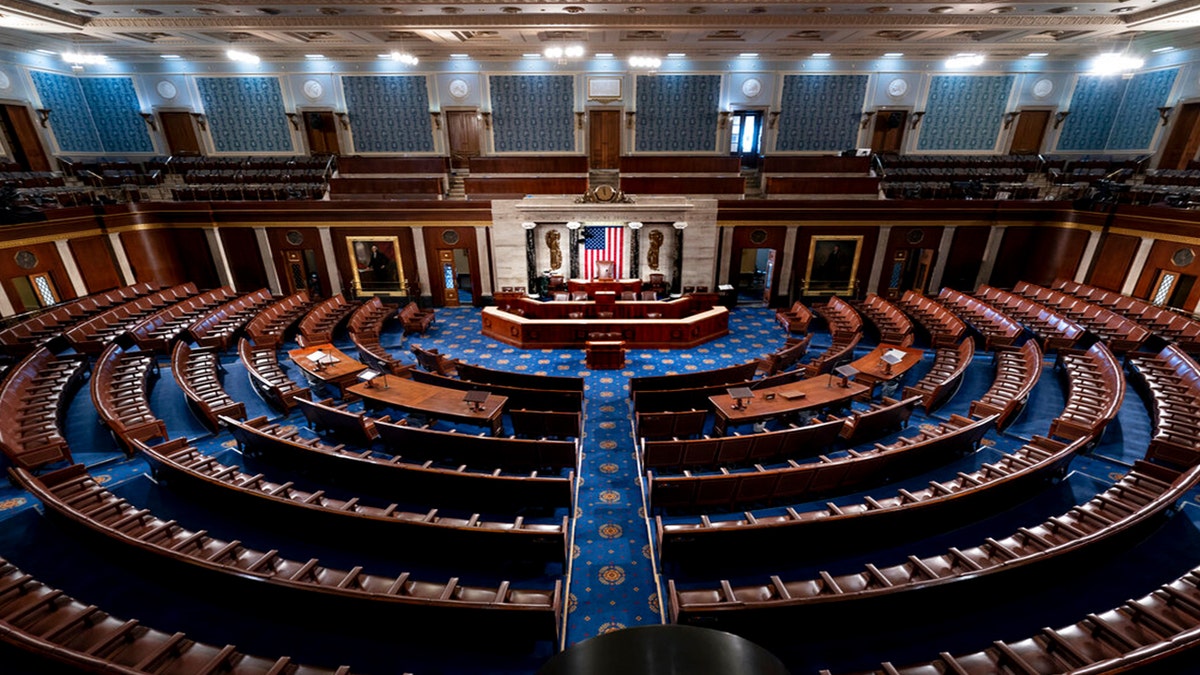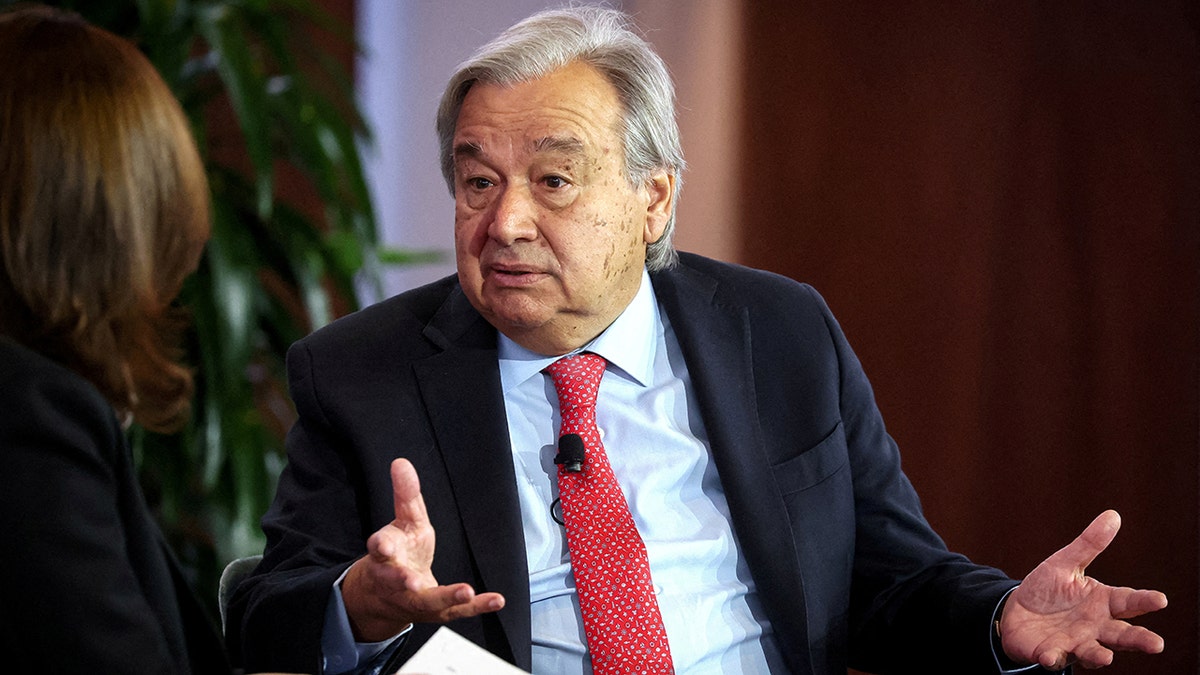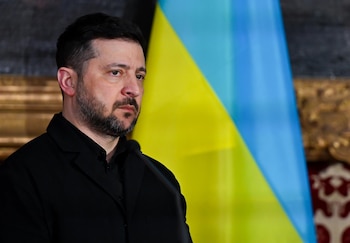INTERNACIONAL
UN said to be stalling reforms in hopes Democrats flip House in midterm elections

While the United Nations, through its UN80 Task Force, continues a public-facing attempt to slash its budget to manage a decline in external contributions and in recognition of overlapping mandates and duplicated efforts, a U.N. diplomatic source tells Fox News Digital that the effort is an attempt «to keep a mammoth organization untouched» until 2026 midterm elections.
The source explained that the «zero-growth budget» proposed for 2026 has already been prepared, and that «talk about how we’re going to get it leaner» is only intended to «take [President] Trump for a sucker.» The source said that the U.N. believes that the budget will tide the U.N. over until the House flips to Democratic control and Trump will no longer be able to «inflict damages to the U.N.»
The source claimed the effort is the «brain child» of the U.N. Foundation, something the group refuted.
«We have never proposed linking U.N. budgetary deliberations to the U.S. mid-term elections,» a spokesperson from the U.N. Foundation told Fox News Digital.
WATCHDOG ORG CALLS FOR SANCTIONS AGAINST UN APPOINTEE ACCUSED OF ANTISEMITISM
A view of the United Nations Headquarters building in New York City, United States on Jul. 16, 2024. (Jakub Porzycki/NurPhoto via Getty Images)
«The U.N. Foundation is an independent organization, separate from the U.N. itself. We are not involved in the U.N.’s budget process, which is decided by the U.N. General Assembly. We also share a widely held view that there is scope for efficiencies and innovations to strengthen delivery of the U.N.’s lifesaving work,» the spokesperson added.
Fox News Digital viewed internal documents which show efforts by various U.N. entities to direct cost-cutting measures. The source says some show the disingenuous nature of the effort.
A UN80 memo from the U.N. Resident Coordinators in Africa from April 2025 discusses how previous reforms have failed. It explains that they «did not fully address incentives for collaboration,» which left U.N. entities to «too often prioritize their corporate obligations over system-wide coherence.» Coordination, the memo reads, «is too easily viewed as additional work rather than a core responsibility,» and «funding competition further compounds these issues.»
UN GLOBAL COMMS ARM UNDER FIRE FOR ANTI-ISRAEL BIAS AS CRITICS CALL FOR REFORMS

The official X account for a United Nations women’s group got hammered this week after waiting almost two months to call out Hamas by name for its attack on Israel. (REUTERS/Yana Paskova/File Photo)
While the memo identifies two options for reorganization, it notes that «implementing such ambitious structural reforms, especially Option 1, will require a medium-term phased approach over a 5-10 year horizon,» and notes that Option 2 «is not likely to be viable if no structural changes are made to [headquarters] level entities.»
The U.N. source says the memo «shows…the inability of the U.N. to reform itself.»
Another memo from the office of the Secretary-General sent on April 25 directs Secretariat entities to perform a «functional review for cost reductions and efficiencies.» Among the directions provided is that personnel «identify which functions could be relocated,» including «at a minimum the functions, organizational units, post numbers, and grade levels proposed for relocation.»
Numbers were to be sent to the Office of the Controller by May 16, noting that the «tight deadline» is in line with the «very limited timeframe» the U.N. has «to prepare and submit the revised estimates through [the Advisory Committee on Administrative and Budgetary Questions (ACABQ)]» so they might be considered «within the overall context of the proposed programme budget for 2026.»
Fox News Digital’s source called foul on the earnestness of the endeavor. «This Secretary-General has to deal with bodies that, even though they are called the United Nations, they do not depend on him,» they explained. «The document does not represent any value legally, because none of their boards have committed nor listened or reviewed» the order.
REPUBLICANS SEEK TO BLOCK THE REAPPOINTMENT OF UN OFFICIAL ACCUSED OF ANTISEMITISM

The chamber of the House of Representatives is seen at the Capitol in Washington, Feb. 28, 2022. (J. Scott Applewhite, File)
Fox News Digital asked Secretary-General Antonio Guterres’ spokesperson Stephane Dujarric whether Guterres could expect organizations with independent boards to enforce changes like those addressed in his memo. «We do not take such a pessimistic view. The Secretary-General and the heads of the U.N. Funds and Programmes will act in areas under their authority while, of course, keeping the governing bodies informed,» Dujarric said.
Before the deadline for responses came due, Guterres delivered a May 12 briefing admitting that the proposal for the 2026 budget «was already given to ACABQ some time ago and it will be impossible to change it at the present moment.» While Guterres said he would present revised proposals in September in time for budget approvals, he explained that «changes that require more detailed analysis will be presented in the proposal» for the 2027 budget.
Fox News Digital’s source says the admission is proof that «this whole attempt is a lie to appease the Americans so they don’t go harsh enough and cut anything right now.»

United Nations Secretary-General António Guterres speaks at the ReutersNEXT Newsmaker event in New York City, New York, U.S. (REUTERS/Brendan McDermid)
On May 13, Guterres addressed a letter to all U.N. staff about the need for «bold, transformative thinking» and extensive reforms to bring the U.N. out of its liquidity crisis. While expressing gratitude for employees’ «extraordinary dedication, expertise and creativity» he warned «that ‘leaks’ and rumours may create unnecessary anxiety,» Guterres said that «it will be inevitable that we cannot leave all posts untouched.»
After over three decades of working for the U.N., the source says they have «seen the U.N. attempt to change itself at least five times.» Instead, they said that the U.N. only got «a larger footprint.» They explained that other insiders «are fed up that the organization is not changing.»
CLICK HERE TO GET THE FOX NEWS APP
«You have…a super state that basically controls itself,» the source explained. «And you should also trust them to reorganize themselves?» they asked.
Whether the U.N. could hold out for promised change is unknown. The Economist reported in May that due to nonpayment of fees, the U.N. may run out of funds to pay its suppliers and employees by the General Assembly in September.
INTERNACIONAL
Afirman que Nahuel Gallo está en huelga de hambre total: no come ni toma agua

INTERNACIONAL
El secreto peor guardado de Vladimir Putin en Ucrania tras cuatro años de invasión rusa

El Ejército ruso ha perdido más de 300.000 hombres en los cuatro años de guerra en Ucrania, según fuentes independientes. Aunque las bajas rusas son un secreto a voces, el Kremlin mantiene silencio para no instigar aún más el creciente descontento entre los rusos con la campaña militar.
La última vez que el Ministerio de Defensa ruso informó sobre muertos en acción –Cargo 200– fue en septiembre de 2022 -cuando los situó en 5.937-, justo antes de la movilización de reservistas que provocó el exilio de más de un millón de hombres en edad militar.
Fuentes occidentales, desde la OTAN a la inteligencia estadounidense y británica, estiman en un millar las bajas diarias en las filas rusas y en más de 30.000 las pérdidas mensuales. Además, enero sería el primer mes en el que el Ejército ruso no puede reponer las bajas con voluntarios.
Los militares rusos caídos se llaman Cargo 200 desde la guerra de Afganistán (1979-1989). Entonces, el talón que acompañaba al cargo ponía 200, ya que ese era el peso máximo del féretro de zinc permitido por el Ministerio de Defensa de la Unión Soviética.
El conocido bloguero militar Yuri Podoliak, que ha sido invitado a recepciones en el Kremlin, fue el que rompió la baraja al abordar en enero en YouTube el sensible tema del Cargo 200.
Podoliak admitió que el Ejército ruso podría haber perdido hasta 415.000 hombres entre soldados, voluntarios y antiguos presidiarios reclutados por el grupo Wagner.
Además, situó las bajas totales en más de 800.000 de los más de dos millones de rusos que han participado en la conocida como ‘operación militar especial’. Ese número de pérdidas humanas contrasta con las conquistas territoriales: apenas un 12% del territorio ucraniano desde el 24 de febrero de 2022.
Según los expertos occidentales, ningún país ha sufrido tantas bajas en un conflicto desde el fin de la Segunda Guerra Mundial en 1945. De hecho, las tropas rusas han sufrido más bajas en estos cuatro años que en todos los conflictos anteriores desde la contienda mundial, lo que incluye las dos sangrientas guerras chechenas.
El portal independiente Mediazona, en colaboración con Meduza y la BBC, cifra los combatientes rusos muertos e identificados con nombres y apellidos en más de 168.000.
A esta cifra hay que sumar los muertos aún no identificados, pero incluidos, entre otros, en los certificados de defunción y hereditarios de acceso público, datos de servicios funerarios o denuncias de desaparición. De hecho, Mediazona admite que, según sus cálculos aproximados, esa cifra rondaría ya los 300.000, a falta de los datos de este año.

En los primeros meses la mayoría de muertos eran soldados profesionales -efectivos de las fuerzas aerotransportadas y de las brigadas motorizadas-, después los presidiarios y a partir de mediados de 2023, los voluntarios.
Mientras, el Centro de Estudios Estratégicos e Internacionales de EE.UU. publicó a principios de año un informe en el que aseguraba que “desde febrero de 2022 las fuerzas rusas han sufrido casi 1,2 millones de bajas (325.000 muertos), más que ninguna otra potencia en cualquier campaña desde la Segunda Guerra Mundial”.
En cuanto a Ucrania, según las estimaciones del centro, habría sufrido entre 500.000 y 600.000 bajas y entre 100.000 y 140.000 muertos.
“A este ritmo, las bajas rusas y ucranianas combinadas podrían alcanzar los 2 millones para la primavera de 2026”, destacó.
Al contrario que el Kremlin, el presidente de Ucrania, Volodímir Zelensky, sí admitió recientemente más de 55.000 muertos en las filas de su ejército.

El Kremlin ha intentado ocultar por todos los medios esta información, lo que incluye el cese de la publicación de datos oficiales sobre mortalidad en Rusia, pero también otros indicadores demográficos que permitirían calcular los muertos en combate.
El presidente ruso, Vladímir Putin, prohibió la publicación de datos de bajas en las filas de las Fuerzas Armadas en mayo de 2015, después de que soldados irregulares rusos fueran desplegados en el este de Ucrania para apoyar la sublevación prorrusa.
De esta forma, los rusos no tienen acceso a datos sobre las pérdidas humanas en el ejército tanto en tiempos de paz, como durante operaciones militares especiales.
Con todo, la censura no es infalible. El segundo tribunal militar del Distrito Occidental admitió a finales de enero, contra la versión oficial, que el buque insignia de la Flota del Mar Negro, el ‘Moskvá’, había sido hundido en abril de 2022 en un ataque ucraniano con torpedos.
Además, el fallo admitió la muerte de 20 marineros, identificados con nombres y apellidos, a lo que hay que añadir ocho desaparecidos.
(Con información de EFE)
War,Europe,Military Conflicts
INTERNACIONAL
Major drug lord ‘El Mencho’ killed in Mexican military operation with US intelligence support

NEWYou can now listen to Fox News articles!
Major Mexican drug lord Nemesio Oseguera, known as «El Mencho,» was killed in a military operation Sunday morning, the country’s Defense Department announced, marking one of Mexico’s most significant blows to organized crime amid pressure from President Donald Trump to intensify the crackdown on drug cartels.
The announcement came as government officials warned of clashes in Jalisco state and widespread criminal activity across the country, prompting the U.S. Embassy in Mexico to issue shelter-in-place advisories for multiple states.
On Sunday, Mexican troops reportedly conducted operations in Tapalpa, Jalisco, targeting Nemesio Rubén Oseguera Cervantes, a former police officer who became the elusive leader of the Cartel de Jalisco Nueva Generación (CJNG), a major supplier of fentanyl to the United States.
Known as «El Mencho,» Oseguera Cervantes carried a $15 million U.S. bounty and rose to power following the arrest of Joaquín «El Chapo» Guzmán, the former head of the Sinaloa Cartel. Over the past 15 years, CJNG has grown from a local criminal group into a global trafficking organization operating out of its stronghold in Jalisco.
A MEXICAN DRUG KINGPIN YOU’VE NEVER HEARD OF IS INFILTRATING SMALL-TOWN AMERICA
El Mencho was killed during a Mexican operation in Jalisco on Feb. 22, 2026. (Drug Enforcement Administration)
«I’ve just been informed that Mexican security forces have killed ‘El Mencho,’ one of the bloodiest and most ruthless drug kingpins,» U.S. Deputy Secretary of State Christopher Landau said in a post on X. «This is a great development for Mexico, the US, Latin America, and the world. The good guys are stronger than the bad guys.»
The Mexican Defense Department said the operation was conducted as part of bilateral coordination and cooperation with the U.S., whose authorities provided complementary intelligence that contributed to Oseguera Cervantes’ capture.
White House Press Secretary Karoline Leavitt confirmed that the U.S. «provided intelligence support to the Mexican government in order to assist with an operation in Talpalpa, Jalisco, Mexico, in which Nemesio ‘El Mencho’ Oseguera Cervantes, an infamous drug lord and leader within the Jalisco New Generation Cartel, was eliminated.»
«‘El Mencho’ was a top target for the Mexican and United States government as one of the top traffickers of fentanyl into our homeland. Last year, President Trump rightfully designated the Jalisco New Generation Cartel as a Foreign Terrorist Organization — because that’s exactly what it is. In this operation, three additional cartel members were killed, three were wounded, and two were arrested,» she wrote on X.

Smoke rises into the sky over Puerto Vallarta during an operation targeting cartel activity on Feb. 22, 2026. (Obtained by Fox News Digital)
During the capture, the CJNG ringleader became wounded and died en route to Mexico City, the Defense Department said.
Four others were reportedly killed at the scene of a shootout between Mexican troops and criminal suspects in Jalisco, with Oseguera Cervantes among three additional individuals who were wounded and later died.
Authorities said they detained two other members of the criminal organization and seized a range of weaponry, including armored vehicles and «rocket launchers capable of downing aircraft and destroying armored vehicles.»
Consequently, three members of the armed forces became injured and are receiving treatment.
TOURISTS IN MEXICAN SEASIDE CITY TOLD TO STAY ON RESORT AS GOVERNMENT WARNS OF ‘CLASHES’

Four others were reportedly killed in a Jalisco shootout during the operation (Gabriel Trujillo/Reuters)
Widespread criminal activity has been reported in Jalisco, the cartel’s stronghold, as well as in northern regions that serve as key border and transit corridors for the organization.
The Security Cabinet of the Government of Mexico noted that multiple buildings were reportedly damaged during the «violent incidents,» including roughly 20 branches of Banco del Bienestar, a state-run banking institution.
At least 21 highways remain blocked, with authorities reporting that five have already been reopened.
Photos showed numerous roadblocks and burning vehicles, with dark smoke rising into the sky, across the country – tactics officials say cartels often use to slow or block military operations.
Photos and videos shared with Fox News Digital show thick, dark smoke rising over the skyline of the tourist city of Puerto Vallarta on Mexico’s Pacific Coast in Jalisco.
ALLEGED SINALOA CARTEL FENTANYL PRODUCER CHARGED IN NEWLY UNSEALED FEDERAL INDICTMENT

Widespread criminal activity has been reported in Jalisco, the cartel’s stronghold. (Obtained by Fox News Digital)
«I’m watching the scenes of violence from Mexico with great sadness and concern. It’s not surprising that the bad guys are responding with terror. But we must never lose our nerve,» Landau said.
The Mexican National Guard and Army units from central Mexico and states neighboring Jalisco are currently mobilizing to reinforce security, the Defense Department said.
«We remain in Code Red. We reiterate the recommendation to avoid leaving your homes. The clashes are occurring in several federal entities,» Jalisco state Governor Pablo Lemus Navarro added.

At least 21 highways remain barricaded. (Michelle Freyria/Reuters)
Travel warnings have been issued for Jalisco, including Puerto Vallarta, Chapala, and Guadalajara; Tamaulipas, including Reynosa and other municipalities; and parts of Michoacán, Guerrero, and Nuevo León.
«Due to ongoing security operations and related road blockages and criminal activity, U.S. citizens in the named locations should shelter in place until further notice,» the U.S. Embassy & Consulates in Mexico said.
CLICK HERE TO DOWNLOAD THE FOX NEWS APP

Complementary intelligence from U.S. authorities aided in the operation. (Michelle Freyria/Reuters)
The operation against Oseguera follows sustained pressure from the Trump administration on President Claudia Sheinbaum’s government, urging Mexico to step up its fight against drug trafficking amid threats of potential U.S. intervention.
mexican cartel violence,location mexico,drugs

 ECONOMIA2 días ago
ECONOMIA2 días agoVillarruel cuestionó la apertura de importaciones: «Sin industria, se pasa a depender de China»

 POLITICA2 días ago
POLITICA2 días ago“Ahora es la hora de jugarse”: el mensaje de Patricia Bullrich a los empresarios tras aprobarse la reforma laboral

 ECONOMIA2 días ago
ECONOMIA2 días agoSegún un especialista, el precio de la carne se mantendrá alto “entre dos y tres años”














